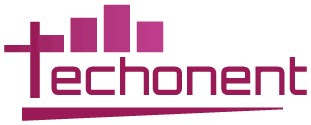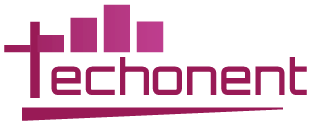
What are Rust and Python?
There's always a debate on Rust vs Python, let's discuss this. The research of Graydon Hoare developed the systems coding language Rust, which places a strong emphasis on concurrent operation, speed, and safety. It offers abstractions at high levels and memory safety without the need for garbage collection, which makes it perfect for low-level system-level programming.
Although Rust's grammar draws inspiration from C and C++, it also incorporates more contemporary features like possession meaning, algebraic concepts. types of information, and matching patterns that help guard against prevalent programming mistakes like data races and null pointer dereferencing.
The data belonging uses either language for different purposes. Rust is more frequently used when speed and performance are crucial, but Python is still preferred by the majority of data specialists.
A number of methodologies for programming, such as administrative in nature object-oriented, and functional software development are supported by Python. It is appropriate for a broad range of applications, such as web development, data science, automation, and intelligent systems, thanks to its extensive ecological systems of libraries and frameworks. The instructional material for Python is clear and thorough.
Comparing Python and Rust
The Python language, named after the comedy group Monty Python, is an interpreted, high-level general-purpose language developed in 1991.
Python and Rust differ significantly because, while both provide back-end web support, Python excels as a consistent and flexible language, whereas Rust makes a name for itself through speed and raw power.
Python got huge popularity due to its intuitive design and work with web development, Al, and Big Data.
However, you should use Rust if you can picture C being recreated for the modern era.
Dave Herman Graydon Hoare and Brendan Eich collaborated at Mozilla Research to create Rust, a high-level, multiparadigm language with multiple purposes. Despite being first shown in 2010, it wasn't released with confidence until 2015. Stability and safety were given priority over performance in its design.
Now that we have a better understanding of the situation, keep reading to learn about the advantages and disadvantages of Rust vs Python. Also, read the beginner's options for Rust and Python.
Rust vs Python: Advantages and Disadvantages
Advantages of Python
● Python's advanced machine learning and artificial intelligence capabilities have led to its increased usage across a range of industries compared to other programming languages.
● The vast array of frameworks and libraries that Python provides is its greatest benefit.
● The asynchronous coding style of Python is flexible and easy to use with complicated code. Having Python skills on your resume improves your chances of getting hired when searching for a good development job. Both small and large businesses use Python as their primary programming language.
Disadvantages of Python
● Python is a dynamic language, which facilitates debugging; however, because programmers are not required to declare variables when coding, errors are typically not detected until runtime. If you test your code on a regular basis, this shouldn't be a major issue.
● It is slower than other compiled languages like Java and C++ because it is interpreted.
Advantages of Rust
● Rust provides secure coding, strict safe memory allocations, and concurrency support. It may accomplish goals without first the use of a garbage collector and includes various mechanisms for parallelism and concurrency.
● Rust is a fantastic programming language for improvement, giving programmers the ability to compile static, native binaries that can be easily deployed.
● Rust development supplies safety and velocity for a variety of tasks, including building distributed services, developing web applications, and developing hybrid mobile apps that use existing command-line tools.
Disadvantages of Rust
● Compared to languages like Perl and Python, Rust does not have the same degree of monkey patching.
● Programmers may need to invest a significant amount of time comprehending and navigating the intricacies of the Rust language since learning it is likewise more challenging than learning other languages.
Applications of Rust vs Python
Uses of Rust:
1. Web Development
The coating of rust is a widespread all-purpose programming syntax for creating websites because of its high performance. In addition to being error-free, it can run faster and with lower latency.
2. Network Programming
Rust can be used for a wide range of network programming responsibilities, including an asynchronous process networking, The Hypertext Transfer Protocol client and server improvement, and internet protocol design.
3. System Programming
Plenty of framework designers like the programming vocabulary Rust. Rust's backward compatibility and quick process of execution also appeal to computer programmers.
4. Game Creation
In game development, Rust is widely used for a variety of tasks, including building game engines, putting game logic into practice, and making cross-platform games.
5. Data Science for Backend
Although Rust and Python are the most popular languages used by programmers for data science, Rust is a great option because of its strong performance and security features, which allow developers to create secure and quick data analytics applications.
Uses of Python
1. Web Development
Using Python development, we can develop web applications and mobile applications, web portal software development, etc.
2. AI & ML
Python that support the coding and algorithms that enable the smooth operation of AI and ML models. Use of AI and ML in business applications presents a new wave of transformation for the sector.
3. Software Development
Python is a flexible programming language used to develop software application, any type of software.
In the end, a Python Hosting is crucial for ensuring that your applications—whether they are written in Python alone or in combination with Rust—perform well, remain secure, and scale effectively.
We hope this article has cleared your doubts on Python vs Rust and now you can understand what programming language is best for your particular projects.

